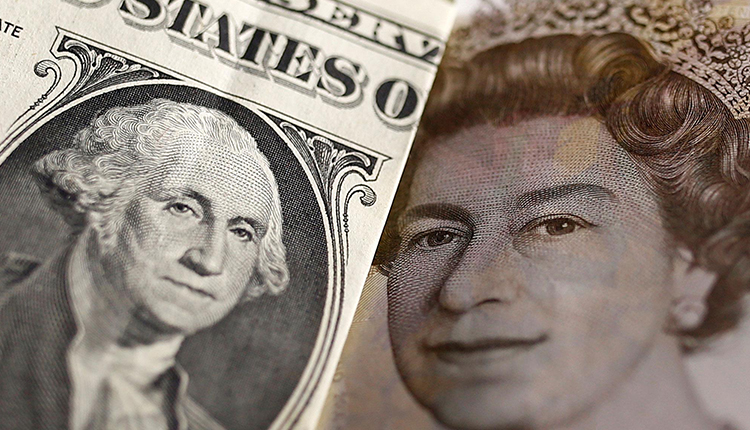Sterling holds gains as Brexit Party pledge eases hung parliament fears
Sterling held gains in Asian trade on Tuesday, having hit a six-month high versus the euro and rising as much as 1 percent against the dollar overnight, as the risk of a hung parliament in UK elections eased slightly.
In a significant boost for Prime Minister Boris Johnson ahead of the Dec. 12 election, Brexit Party leader Nigel Farage said his party was standing down candidates in seats won by the Conservatives in 2017 and would instead focus on challenging anti-Brexit politicians.
The pound rallied to as high as $1.2896 on the news, which the market had interpreted as reducing the probability of a hung- or Labour led- government that would further complicate Britain’s exit from the European Union.
Cable gave up some of its overnight gains and was last at $1.2858.
Sterling had already risen above $1.28 before Farage’s announcement, after data showed the UK economy had narrowly missed a recession in the third quarter of 2019, expanding 0.3 percent.
Against the euro, the sterling strengthened to its highest level since May 8, at 85.62 pence. The pair last stood at 85.79 pence.
Currency analysts said the Brexit Party standing down candidates could clear the way for the Conservatives to pass their Brexit withdrawal deal.
“The sterling’s move was notable while other currencies were quiet, mainly because the U.S. market was closed,” said Ayako Sera, market strategist at Sumitomo Mitsui Trust Bank.
The U.S. financial markets were partially closed on Monday for Veterans Day.
“It certainly is positive that the Conservatives got greater support. But with a month to go ahead of the Dec. 12 election, I’m not all that optimistic because I think anything can still happen,” Sera said.
The euro/dollar last changed hands at $1.1033, flat on the day, while the greenback was a shade higher at 109.15 yen.
“The dollar’s recent rally on the back of rising Treasury yields paused yesterday as the U.S. cash bond market was closed for Veterans Day,” said Mitsuo Imaizumi, chief currency strategist at Daiwa Securities.
Also weighing on the U.S. currency were doubts about whether Beijing and Washington can reach a potential trade agreement and roll back tariffs, and concerns over rising Hong Kong tensions.
Caution ruled ahead of a speech by President Trump to the Economic Club of New York later in the day in case there was any new word on the China-U.S. “phase one” trade deal.
In Hong Kong, riot police fired tear gas at a university campus on early Tuesday, a day after a protester was shot and a man set on fire in some of the most dramatic unrest to rock the Chinese-ruled city in more than five months.
The Chinese yuan was little changed at 7.0040 per dollar in offshore trade, with traders awaiting developments on trade as well as Hong Kong.
Elsewhere, the New Zealand dollar slipped as traders wagered on a higher probability of a rate cut this week after a central bank survey on Tuesday showed the country’s near-term inflation expectations eased in the fourth quarter.
The New Zealand dollar skidded as much as 0.6 percent to $0.6326 after the Reserve Bank of New Zealand’s quarterly survey of expectations. It last quoted at $0.6333.
As a reduction to the official cash rate by the RBNZ will add pressure on its Australian counterpart to ease too, the Aussie dollar also dipped to as low as $0.6832.
Source: Reuters


